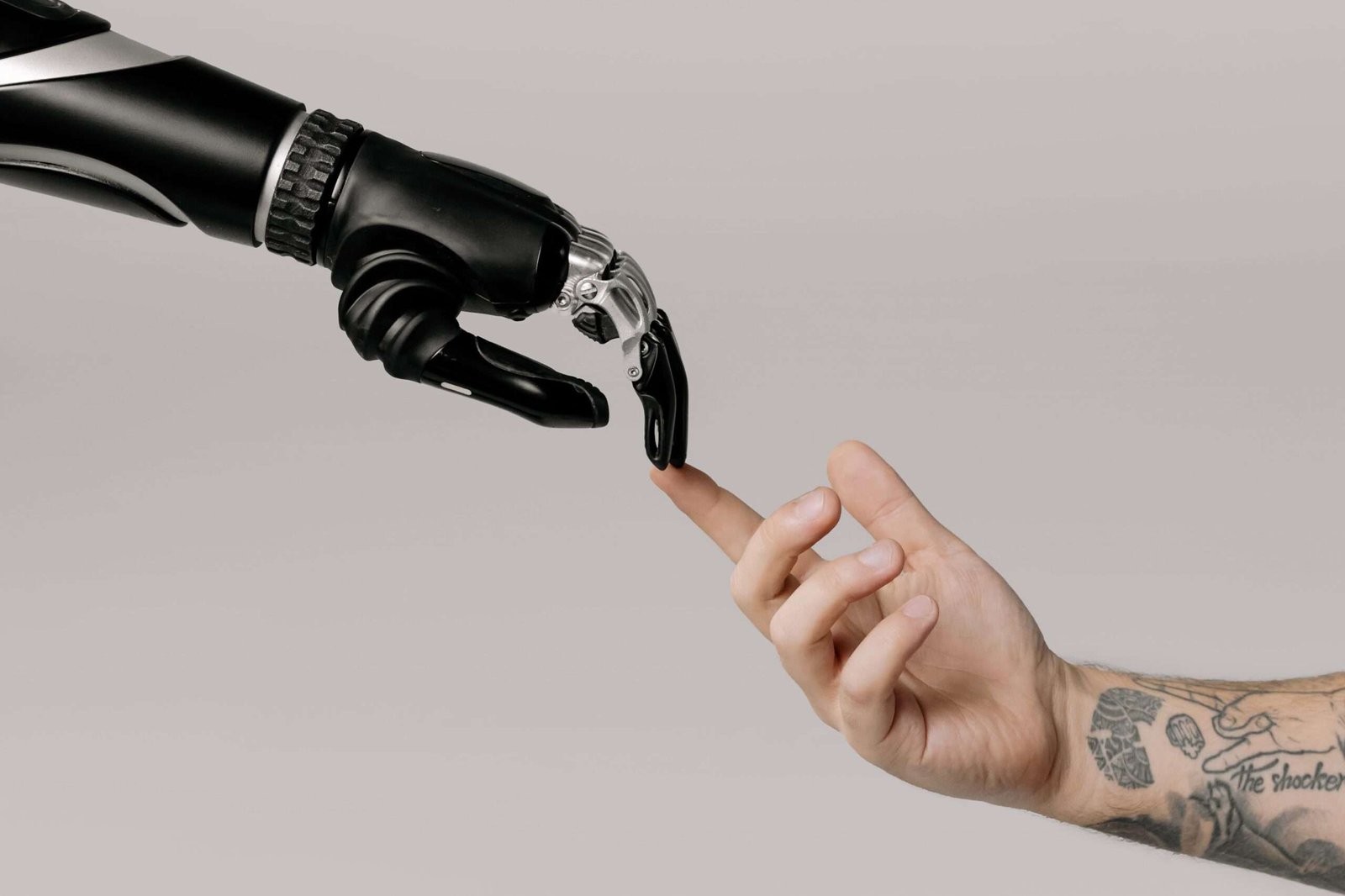Artificial Intelligence (AI) holds immense importance across various fields due to its transformative capabilities and potential to revolutionize how we work, live, and interact. Here are some key aspects highlighting its importance
How Life Make Easier by AI ?

Automation and Efficiency:
- Task Automation: Artificial intelligence can automate repetitive tasks, freeing up human resources for more complex and creative endeavors. This includes automating workflows, data entry, customer service, and more. Like CHATGPT
- Enhanced Efficiency: AI algorithms optimize processes, making them faster and more efficient. In industries like manufacturing, logistics, and healthcare, this leads to cost savings and improved productivity.
Decision-Making and Predictive Capabilities:
- Data Analysis: Artificial intelligence can analyze vast amounts of data to extract insights and patterns that humans might miss. This is valuable in fields like finance, marketing, and healthcare for making informed decisions.
- Predictive Analytics: Artificial intelligence algorithms can predict outcomes and trends based on historical data, assisting in forecasting, risk assessment, and strategy formulation.
Personalization and Customization:
- Personalized Experiences: Artificial intelligence enables personalized recommendations in entertainment, shopping, and content consumption by understanding user preferences and behavior.
- Tailored Services: In healthcare, education, and customer service, AI can provide tailored recommendations and solutions based on individual needs.
Innovation and Creativity:
- Innovation Acceleration: Artificial intelligence fosters innovation by streamlining processes, allowing for faster experimentation, and enabling the development of novel solutions.
- Creativity Enhancement: AI tools assist in creative tasks like art, design, music composition, and content creation, offering new possibilities and augmenting human creativity.
Advancements in Various Industries:
- Healthcare: AI aids in diagnostics, drug discovery, personalized medicine, and remote patient monitoring, improving healthcare delivery and outcomes.
- Finance: AI-driven algorithms enhance fraud detection, risk assessment, algorithmic trading, and personalized financial advice.
- Manufacturing and Logistics: AI-powered automation optimizes supply chains, inventory management, and production processes, increasing efficiency and reducing errors.
Addressing Global Challenges:
- Solving Complex Problems: AI contributes to solving complex challenges like climate change, resource management, disaster response, and public health crises through data analysis and modeling.
Ethical Considerations:
- Ethical Use: The importance of ensuring AI is developed and deployed responsibly, considering ethical implications, bias mitigation, and privacy concerns.
Safety and Security:
- Enhanced Security Measures: AI strengthens security systems by identifying threats, detecting anomalies, and preventing cyber attacks through pattern recognition.
- Risk Assessment: In industries like finance and insurance, AI assesses risks and detects fraudulent activities more effectively.

List Of Field Use By Artificial Intelligence :
Healthcare and Medicine:
- Medical Imaging: AI aids in interpreting medical images for diagnoses in radiology, pathology, and other fields.
- Drug Discovery: Accelerates the process of identifying potential drug candidates through data analysis and predictive modeling.
- Personalized Medicine: Tailors treatments and therapies based on individual patient data and genetic information.
Finance and Banking:
- Algorithmic Trading: AI-driven algorithms make high-frequency trading decisions based on market analysis.
- Fraud Detection: Identifies unusual patterns or anomalies in financial transactions to prevent fraudulent activities.
- Customer Service: Chatbots and virtual assistants handle customer queries and support in banking and finance.
Marketing and Sales:
- Personalized Marketing: AI analyzes customer data to provide targeted and personalized marketing campaigns.
- Sales Forecasting: Predictive analytics helps forecast sales trends and optimize sales strategies.
Retail and E-commerce:
- Recommendation Systems: AI powers product recommendations based on user behavior and preferences.
- Inventory Management: Optimizes inventory levels and predicts demand to minimize stockouts and overstock situations.
Manufacturing and Supply Chain:
- Predictive Maintenance: AI forecasts equipment failures, reducing downtime and optimizing maintenance schedules.
- Supply Chain Optimization: AI analyzes supply chain data to enhance efficiency and reduce costs.
Transportation and Logistics:
- Autonomous Vehicles: AI enables self-driving cars and trucks, revolutionizing transportation.
- Route Optimization: Optimizes logistics and delivery routes to minimize time and fuel consumption.
Education:
- Personalized Learning: AI provides adaptive learning platforms tailored to individual student needs and learning styles.
- Automated Grading: AI assists in grading and evaluating student work, saving time for educators.
Human Resources and Recruitment:
- Recruitment Automation: AI screens resumes, conducts initial interviews, and matches candidates with job requirements.
- Employee Engagement: AI analyzes employee sentiment and engagement to improve workplace dynamics.
Agriculture:
- Precision Farming: AI helps optimize crop yields by analyzing data on weather, soil conditions, and crop health.
- Livestock Monitoring: AI monitors and analyzes livestock behavior and health for better management.
Energy and Utilities:
- Grid Optimization: AI assists in managing power grids efficiently, predicting demand, and optimizing energy distribution.
- Predictive Maintenance: Helps prevent equipment failure and optimize maintenance schedules in energy production facilities.
Entertainment and Gaming:
- Content Recommendation: AI suggests personalized content in streaming services, music platforms, and video games.
- Game Development: AI assists in creating more immersive and dynamic gaming experiences.
Future Of Artificial Intelligence
The future of AI holds incredible potential, with ongoing advancements and developments set to reshape various aspects of society and technology. Here’s a glimpse into what the future might hold for AI

Continued Integration in Daily Life:
- AI in Smart Devices: Further integration of AI in smartphones, wearables, and home appliances for enhanced personalization and convenience.
- IoT and AI Integration: Greater synergy between the Internet of Things (IoT) and AI, leading to more interconnected and smart systems. Importance Of AI
Advancements in Healthcare:
- Precision Medicine: AI-driven personalized treatments and therapies tailored to an individual’s genetic makeup and health data.
- Medical Diagnostics: Improved accuracy in medical imaging analysis, early disease detection, and diagnosis using AI algorithms.
Autonomous Systems and Transportation:
- Self-Driving Vehicles: Advancements in autonomous vehicles, impacting transportation, logistics, and reshaping the automotive industry.
- Drone Technology: AI-powered drones for various applications, including delivery services, surveillance, and environmental monitoring.
Ethical AI and Regulations:
- Ethical Guidelines: Development of stricter ethical standards and regulations to ensure responsible AI development and deployment, focusing on fairness, transparency, and accountability.
- AI Governance: Establishment of frameworks and policies for the ethical use of AI across industries and society.
AI-driven Innovations:
- AI in Creativity: Further exploration of AI’s role in creative endeavors such as art, music, literature, and content creation.
- Innovations in Robotics: Advancements in robotic technology, potentially leading to more humanoid robots with advanced capabilities.
AI and Climate Change:
- Environmental Applications: Leveraging AI to address environmental challenges, including climate modeling, resource management, and sustainability initiatives.
Quantum Computing and AI:
- Advancements in Computing: Integration of AI with quantum computing, potentially unlocking significant computational power for solving complex problems.
AI in Education and Workforce:
- Personalized Education: AI-driven adaptive learning platforms catering to individual student needs and learning styles.
- Changing Work Dynamics: AI’s impact on the workforce, creating new job roles while transforming existing ones through automation and augmentation.


[…] Supervised Learning: In this approach, the algorithm learns from labeled data, where the input data is paired with the correct output. The algorithm then learns to predict the output from the input data. More About Artificial Intelligence. […]